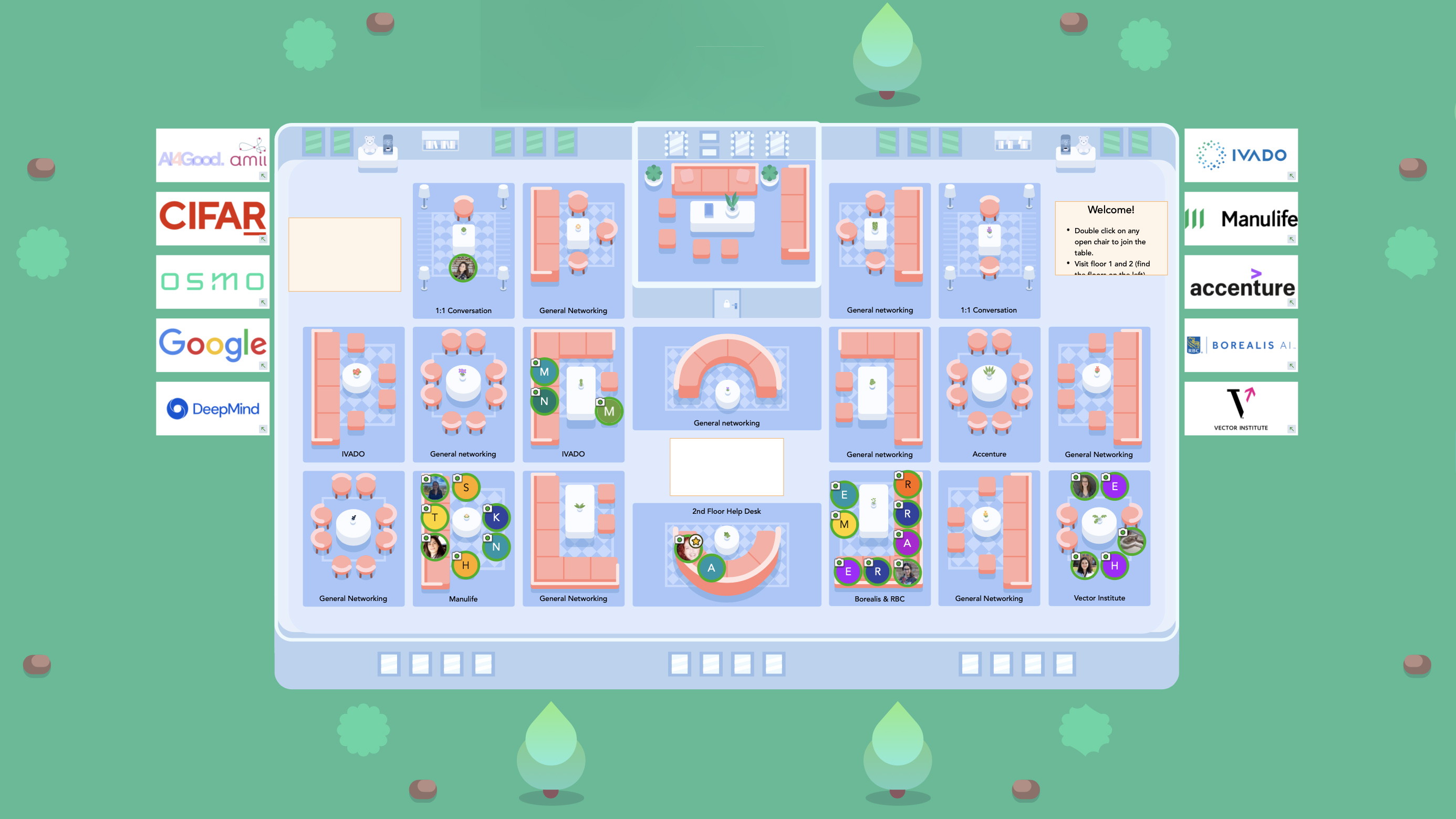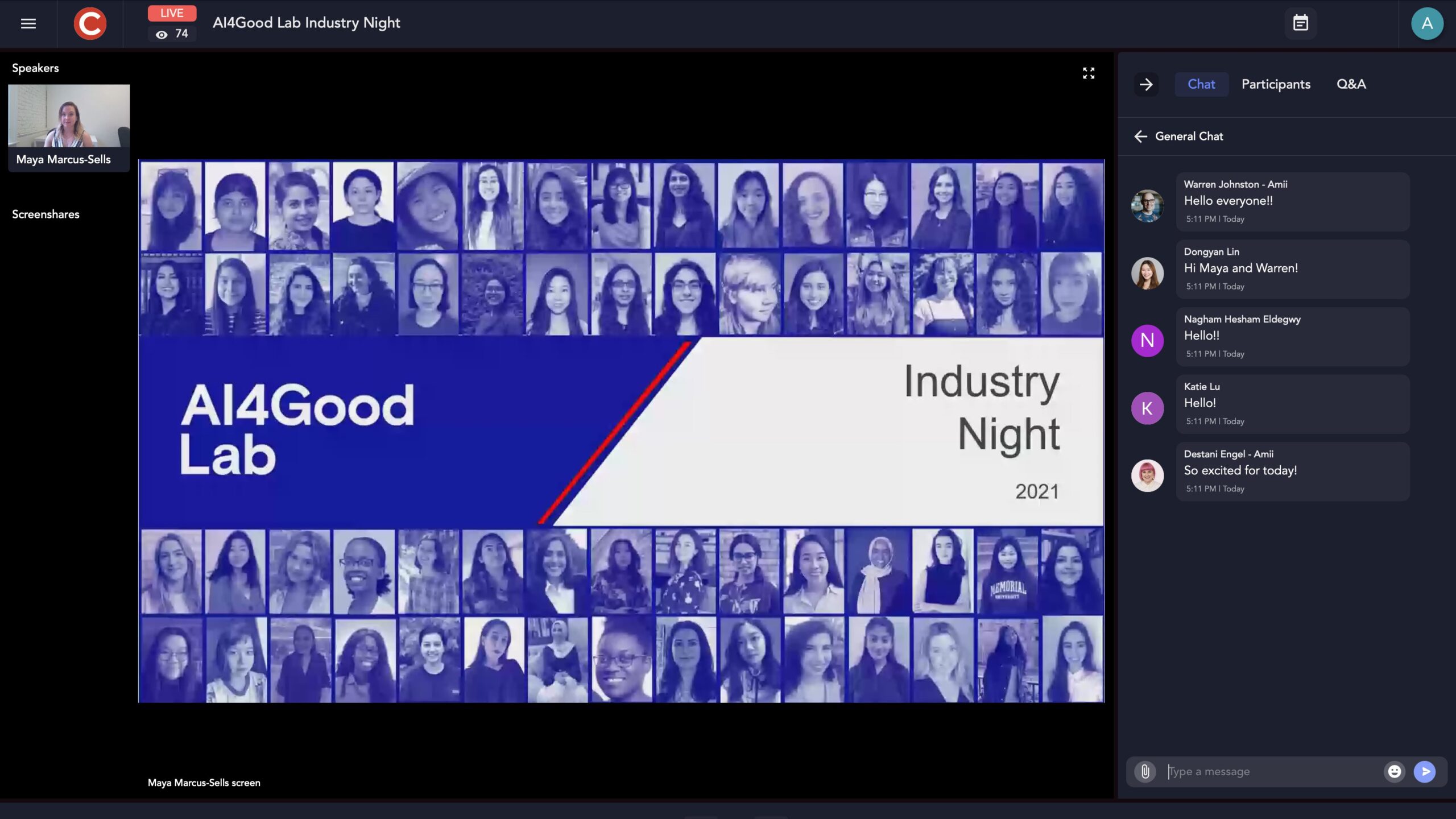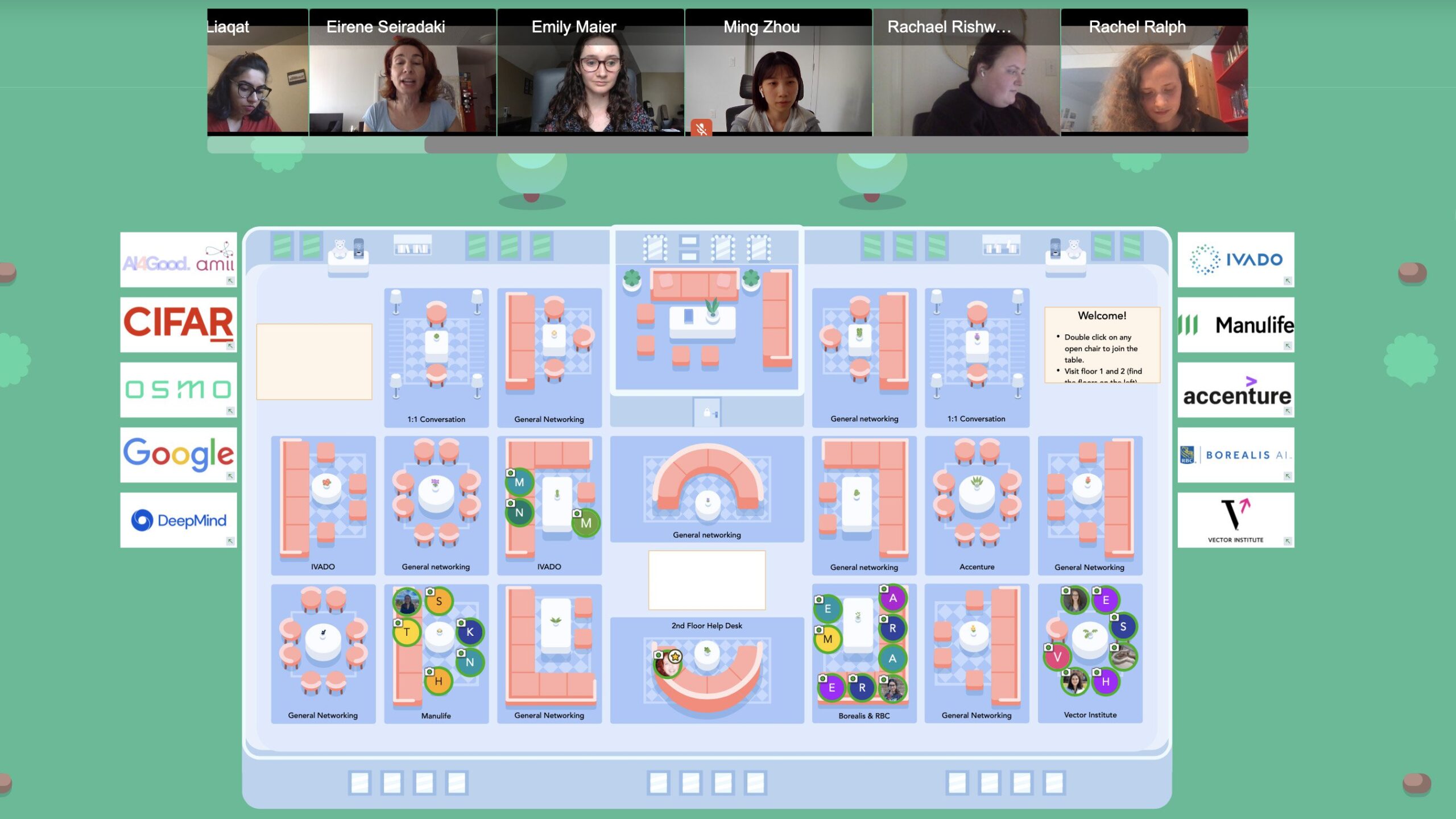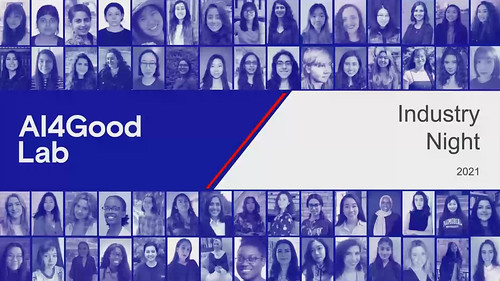
We sat down with more than 50 of Canada’s future female AI pioneers. They reminded us of the importance of social good and life-long learning.
For many of the government and industry partners in attendance at the AI4Good Lab’s Industry Night organised by CIFAR this year, the plan was to provide support, mentorship and guidance to the participants of the AI4Good Lab – a Canadian AI training initiative for women-identified STEM students. Industry experts would spend time with participants, exploring their fields of study, their goals and ambitions, and future career opportunities in the field.

While COVID-19 may have prevented attendees from being together in person, the organizers ensured everyone felt relaxed and comfortable in the virtual booths. The RBC Borealis/RBC Amplify booth, for example, featured a ‘virtually comfortable’ L-shape couch, two square stools and a rectangle coffee table. Non-virtual drinks were, sadly, ‘BYOB.’
The two hostesses of the RBC Borealis/RBC Amplify booth, Dr. Eirene Seiradaki, Director of Research Partnerships at RBC Borealis and Rachael Rishworth from RBC Amplify, talked with the AI4Good Lab participants about the wide range of learning and career opportunities available as students continue their journey of lifelong learning – from the RBC Borealis Fellowships (which support AI researchers at Canadian Universities) and RBC Borealis Internships through to the RBC Amplify program, which provides interns with hands-on prototype development opportunities at the bank.
The AI4Good Lab participants certainly seemed enthusiastic to learn and share. The booth was full for the entire 2 hours – a testament to the quality of the discussions (and, perhaps, the comfort of the virtual furniture?).

Alongside other big names in AI such as CIFAR, AMII, Vector Institute, Google Canada, DeepMind, Accenture and Manulife, the RBC Borealis/RBC Amplify team offered participants a view into the wide array of initiatives and opportunities available in the AI space. They also spent time answering the participants’ questions about careers in the field of AI.
Yet it wasn’t just the students of the AI4Good Lab that were learning that night; so, too, were the industry partners and booth hosts and hostesses. Virtual networking lounges were placed in between booths, creating unique spaces that encouraged fruitful discussions among all participants – students, partners and organizers. Hosts and hostesses also visited each other’s booths to talk with ecosystem partners; in fact, rumor has it that Eirene was spotted on one of the ‘virtually hipster’ stools at the Vector Institute booth, taking a few minutes to chat with good friends and their guests at the end of the event.
More importantly, perhaps, the event highlighted the future impact the participants can make in the field and in the world around them. Since the start of the AI4Good Lab program in early May, the female-identified students participating in the Lab’s two cohorts in Montreal and Edmonton have been building their AI skills and capabilities, in order to conceptualize, design and develop a prototype of an AI application for social good. It is their ideas, research and development that will shape the debate around the value and ethics of AI in the future.
Ultimately, the AI4Good Industry Night demonstrated that learning is a life-long and collaborative journey. Industry participants shared their experience and insights; the students and the organizers of the AI4Good Lab shared theirs. Everybody left the event with a renewed sense of optimism, new ideas and new network connections.
On behalf of the attendees of the AI4Good Lab Industry Night, we would like to thank Maya Marcus-Sells and Yosra Kazemi for organizing a fantastic event in the face of the continued disruption of COVID-19.
Below are just a few photos of the event. We are confident the ideas generated there will emerge into view over the coming months and years.
News
Meet Turing by RBC Borealis, an AI-powered text to SQL database interface
News
